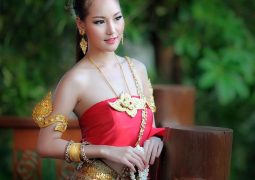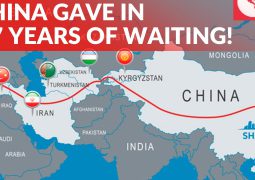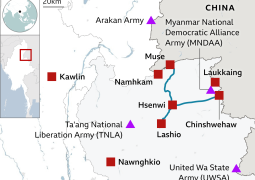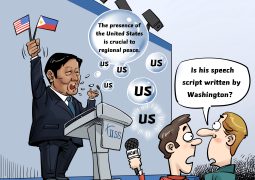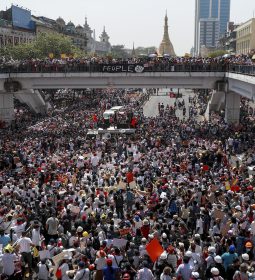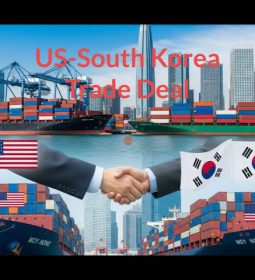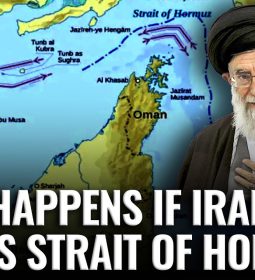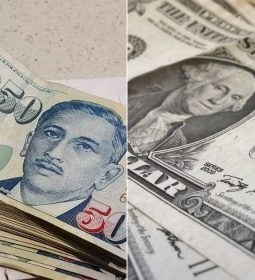A baby named Trump and admiration for a new U.S. president in northern Iraq
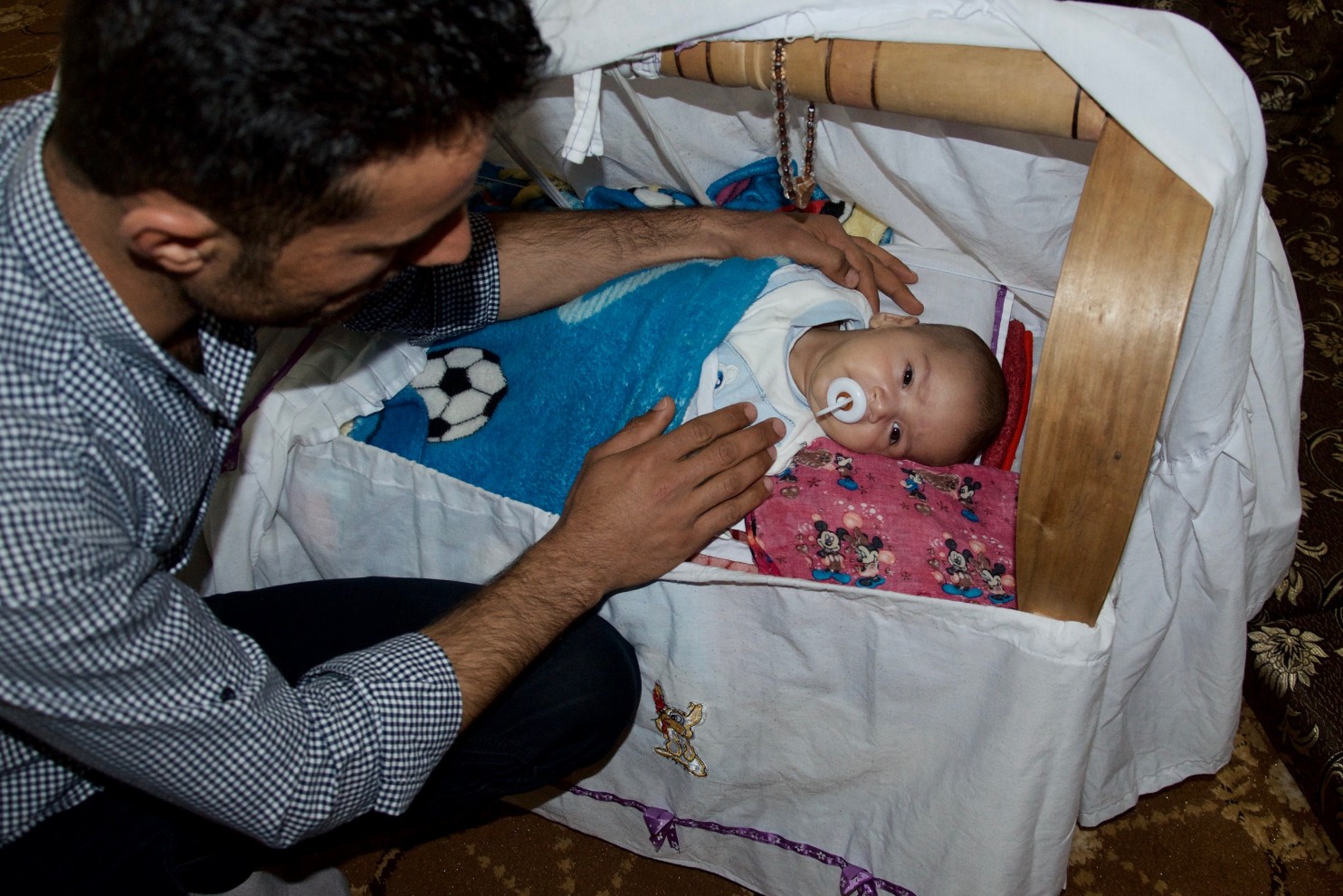
Jamil, who doesn’t speak English, couldn’t understand the Republican nominee’s words but said it didn’t matter. The candidate’s forceful cadence told him everything he needed to know.
The night Trump clinched the presidency, Jamil made a decision that took his pregnant wife by surprise.
“I decided that if my wife gave birth to a boy, I would 100 percent name him Trump,” he said.
Two weeks later, on Nov. 23, Jamil’s wife gave birth not only to a baby boy but also to what appears to be a burgeoning Kurdish legend.
His name: Trump Hassan Jamil — a.k.a. “Little Trump.”
Jamil, a 25-year-old father of three and Kurdish peshmerga fighter, said he was proud of his decision. “What I like most and admire about Donald Trump is that he’s a confident man and a successful businessman. He became a leader because he has self-confidence; otherwise he wouldn’t be president.”
[After a slow and bloody fight against ISIS, Iraqi forces pick up the pace]
Six thousand miles away, dossier-citing Democrats would beg to differ, perhaps, but Trump appears to have no shortage of proud fans in Kurdish areas of northern Iraq. Among a population that respects brash displays of masculine authority, expressions of undying loyalty and the kind of transactional dealmaking that the billionaire businessman touts as his trademark, Trump is enjoying a honeymoon full of cross-cultural appeal.
That appeal is not without expectation, though. Kurdish peshmerga fighters such as Jamil hope the new American president will return the loyalty they have displayed in the fight against the Islamic State by supporting their long-standing quest for an independent state. Their autonomous region has flourished since Saddam Hussein was toppled by American forces nearly 14 years ago, ushering in a new era of security, economic growth and autonomy.
“I’m a big fan of the Kurdish forces,” Trump said in July, leading many to believe that he sympathizes with the population’s political goals.
Trump’s stance on Kurdish independence is unclear, but Walid Phares, a Fox News contributor and one of Trump’s foreign policy advisers, has made statements that seem to imply that U.S. policy toward the Kurds may be malleable.
“Mr. Trump has valued the role of the peshmerga and the Kurdish forces of Iraq against the advances of ISIS,” Phares told a Kurdish television station in June, using another name for the Islamic State.
“Now, after Daesh is receding, how will the United States policy be with regard to the Kurds?” he said, using the Arabic acronym for the militant group. “Definitely that is determined right now by the Kurds becoming allies to the United States. Then we would have our diplomats meeting Kurdish representatives and then together looking at the future and what could be done to strengthen that friendship.”
Some Kurdish officials said they associate Republican presidents with starting the kind of high-risk international conflicts that promise to remake political borders.
Where others see recklessness, they see possible reward.
“Our hope is that Trump and his administration will be bold enough to help the Kurds get independence, which is a basic right of the Kurdish people,” said Shahab Goran, head of the Kurdistan Democratic Party’s local committee in Dahuk province. “Kurdistan can become another Israel for the U.S. in the region.”
“Besides,” he added, “Kurdistan has a lot of oil and gas resources, and all this is about interests, so the U.S. can get something in return for their support for the Kurds.”
In the Kurdish city of Sulaymaniyah, a large Trump poster now graces the side of a chickpea stand on the side of the road.
And in the city of Dahuk, about a 90-minute drive from Mosul — the front lines of the Iraqi government’s fight against the Islamic State — a restaurant owner named Nedyar Zawity opened a new restaurant called Trump Fish.
“I personally love Trump for this,” Trump Fish’s owner told Reuters, referring to the new president’s words of support for Kurds. “The name Trump is beloved in Kurdistan.”
Not to be forgotten, of course, is “Little Trump.”
“This man is the first one in the whole Middle East who has named his newborn after Trump,” Goran said. “Trump should build a hospital or a school or a kindergarten for us because he is a rich businessman. We are proud that this child was named after him.”
Goran and others said they were aware that Trump is a divisive figure in America. The controversy, they said, is a result of his success and the enemies it inevitably produced.
Not even Trump’s inflammatory statements about banning Muslim immigration to the United States seem to deter his support in Kurdistan, where the population is overwhelmingly Muslim.
“Trump himself mentioned that he doesn’t like extremist Muslims, not all Muslims,” Jamil said. “We Kurds are Muslims, but we fight against ISIS because they are extremists.”
While many Americans were shocked by Trump’s election, Jamil was not. He says he saw a Trump victory months before it occurred.
“When a person has that much self-confidence, that person can win,” he said.
He hopes that same belief in self manifests in his son someday. For now, he said, the only quality his infant shares with the president is their unique skin tone.
What color is that, exactly?
“Reddish-orange,” Jamil said.
- Previous Bull-taming claims two people’s lives as India revives controversial sport after a two-year ban
- Next Major overhaul and new plans of modernization of Uzbek Armed Forces announced




